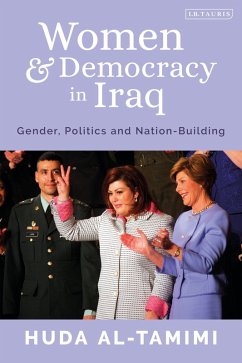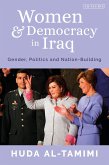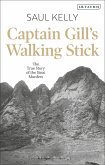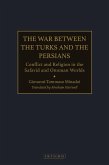As the post-invasion reconstruction of Iraq has unfolded, the potential for Iraqi women to participate actively and visibly in the country's political structure has been one of its most notable results. The 2005 Constitution required that no less than 25% of seats in the Iraqi Parliament be filled by women. Yet despite subsequent parliamentary statistics suggesting great strides for female political participation, there has been a resounding silence on the wider implications of this quota for women in Iraqi political life.
This book is the first full-length study of women's political representation in Iraq. Based on interviews with politicians and substantial media analysis, Huda Al-Tamimi outlines the political, sectarian and cultural constraints facing female Members of Parliament, and the ways in which individual women and women's organizations are actively challenging barriers to their political influence. The book is a vital contribution to discussions concerning the success and limitations of gender quotas in the Middle East. It also offers new and critical perspectives on the evolution of Iraqi politics, a subject that remains of high priority for a region and international community interested in the nation's reconstruction.
This book is the first full-length study of women's political representation in Iraq. Based on interviews with politicians and substantial media analysis, Huda Al-Tamimi outlines the political, sectarian and cultural constraints facing female Members of Parliament, and the ways in which individual women and women's organizations are actively challenging barriers to their political influence. The book is a vital contribution to discussions concerning the success and limitations of gender quotas in the Middle East. It also offers new and critical perspectives on the evolution of Iraqi politics, a subject that remains of high priority for a region and international community interested in the nation's reconstruction.









